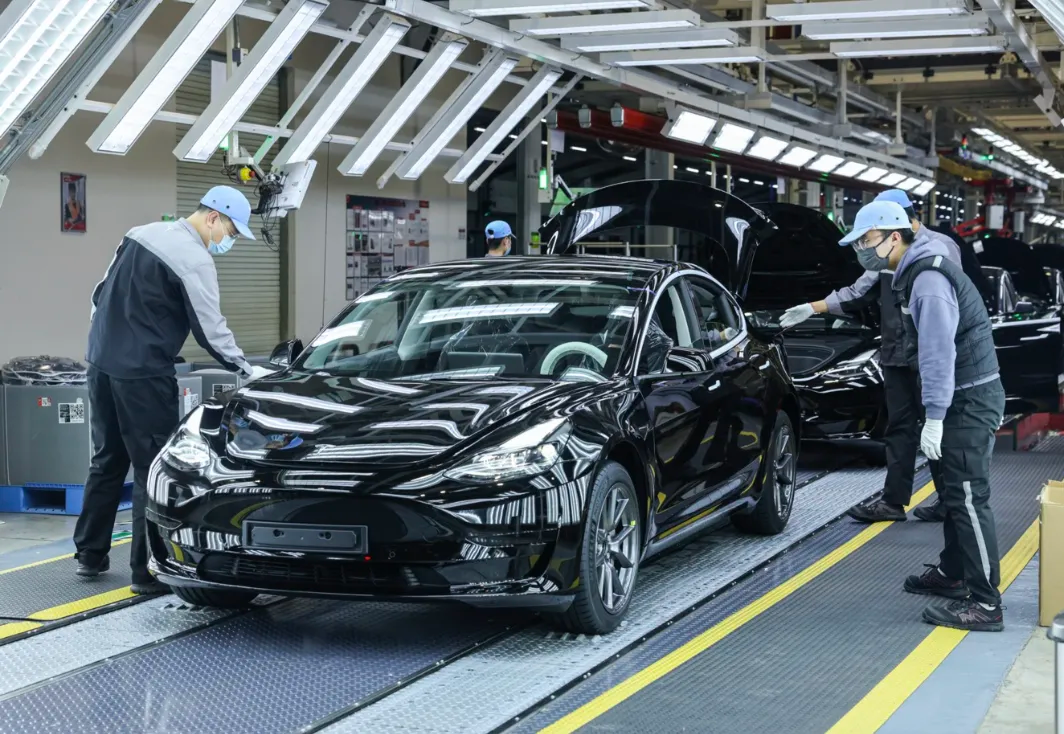Author: Kachi
Editor: Kuang Ji
Recently, there was a proposal suggesting “Elon Musk should teach Porsche when to follow which paths.”
Once during an interview, Musk was asked about the specific marketing strategies for Tesla by the host. He immediately expressed his distaste for the concept of marketing, feeling as if it was a deceitful way of selling products.
Similar to Steve Jobs, Musk strives for perfectionism and dislikes traditional brand marketing. He has decided to focus on building a trusting relationship with Chinese customers in his marketing strategies, one of the key points being car pricing, which is roughly the same in Chinese and foreign markets. Even if there is a price increase due to a chip shortage, there is no “favouritism”.
Despite operating in the Chinese market for many years, Porsche, which sells one car in China for every three cars sold worldwide, has yet to understand the impact of “favouritism”.
Former glory will inevitably become a thing of the past in the face of the era. China is the undisputed arena for the trend of intelligence. There is no need to repeat the “importance of the Chinese market”. Although the comments that “manufacturing is accelerating its exodus from China” caused by the epidemic have been loud, industrial upgrading is also imminent.
Brands like Bosch and Porsche, who came through the era of traditional fuel cars, need to find a new position in this round of industrial cycle. Bosch is well aware of this point, so they have chosen to “firmly stay in China”. However, the arrogant Porsche, like a fool “gnawing on glass and gazing into the abyss,” seems to have not yet understood that “the times have changed”.
“We will stay firm here”
During the Bosch annual press conference on May 10th, the term “supply assurance task,” was frequently mentioned by Bosch China’s president, Chen Yudong.
In the Chinese market, Bosch’s business distribution consists of 20% ToC business and 80% ToB business. Among them, the most crucial point for ToB business is to maintain a steady supply and guarantee that the host factory’s production line does not stop.
However, a car missing a part or a missing link can cause production to halt. One hair can move the entire body, and one missing part can make the whole vehicle assembly impossible.
Although Bosch and most primary suppliers are on the two batches of “white lists” for resumption of work and production issued by the Shanghai Economic and Information Commission, secondary suppliers, and even fourth- and fifth-level suppliers, may not be included.
“In this way, they will be unable to resume work, and the supply chain will be unable to form a supply network, ultimately making the production of products impossible,” Chen Yudong lamented.
From the design of the “white list” to the reporting of it, Chen Yudong has participated throughout. He is well aware of the impact of missing intermediate links and even used a practical example.
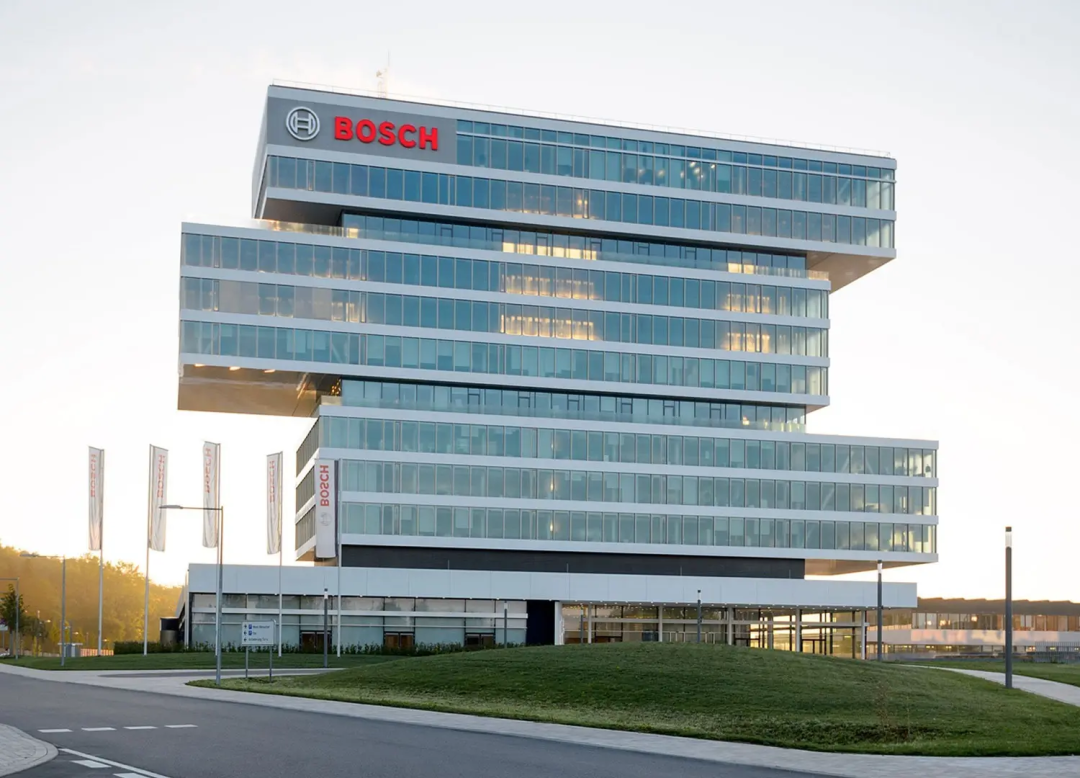 “We have a coating supplier based in Shanghai with small scale, making it difficult for them to resume work. However, if this supplier does not resume work, it will affect the production of the entire supply chain. Later, through various coordination efforts, we helped the company resume work. It is reported that Bosch has more than 40 direct suppliers and hundreds of indirect suppliers. Already, more than 30 suppliers have resumed work and production. We have taken many protective measures, and we have stationed staff in the factory to ensure supply. Our factories have basically achieved closed-loop production, and we spare no effort to ensure supply, including using expensive logistics and spare parts. Currently, Bosch’s output capacity after resuming work and production is approximately between 30% and 75%, but the situation varies by product and factory, making it difficult to quantify the resumption rate.
“We have a coating supplier based in Shanghai with small scale, making it difficult for them to resume work. However, if this supplier does not resume work, it will affect the production of the entire supply chain. Later, through various coordination efforts, we helped the company resume work. It is reported that Bosch has more than 40 direct suppliers and hundreds of indirect suppliers. Already, more than 30 suppliers have resumed work and production. We have taken many protective measures, and we have stationed staff in the factory to ensure supply. Our factories have basically achieved closed-loop production, and we spare no effort to ensure supply, including using expensive logistics and spare parts. Currently, Bosch’s output capacity after resuming work and production is approximately between 30% and 75%, but the situation varies by product and factory, making it difficult to quantify the resumption rate.
In addition to the shortfall in output caused by the epidemic, the chip supply situation in May was also pessimistic, making it more challenging to resume work. After entering May, the main automobile manufacturers have launched a new round of chip procurement pressure on Bosch. Chen Yudong believes that judging from the current situation, Bosch China can still maintain a slight growth this year, but achieving over 10% growth will be challenging. This is mainly because Bosch China’s sales revenue accounts for more than 70% of the Asia-Pacific region, which will impact its growth rate. He believes that Bosch’s goal is to achieve a growth rate 5 percentage points higher than the overall growth rate of the Chinese automobile market. In 2022, the goal pursued by Bosch is to achieve a growth rate faster than the industry average while meeting customer needs.
So, will Bosch adjust its strategy in China due to the impact of this epidemic in order to maintain its growth rate? Chen Yudong frankly said that Bosch does not treat China as a manufacturing center to serve other global markets but regards the Chinese market as a very important market to cultivate. “We will remain firm in here.” Despite facing many challenges, Bosch will continue to invest in technological innovation.
On the other hand, Tesla is also facing challenges in resuming work. If you were to ask which electric vehicle company did slightly better in May, perhaps the answer would be Tesla. Recently, reports stated that after the first batch of 4,767 electric cars from Tesla were shipped out from Shanghai and exported, the second batch of more than 4,000 electric cars were also loaded on a ship and headed for export on May 15th. It can be seen that Elon Musk, who has had a complete change of attitude towards acquiring Twitter, has now returned his focus to Tesla. As one of the first “white-listed” companies to resume work and production in Shanghai, Tesla has continuously increased the delivery speed of orders since resuming work on April 19th, hoping to make up for the earlier production tasks.”
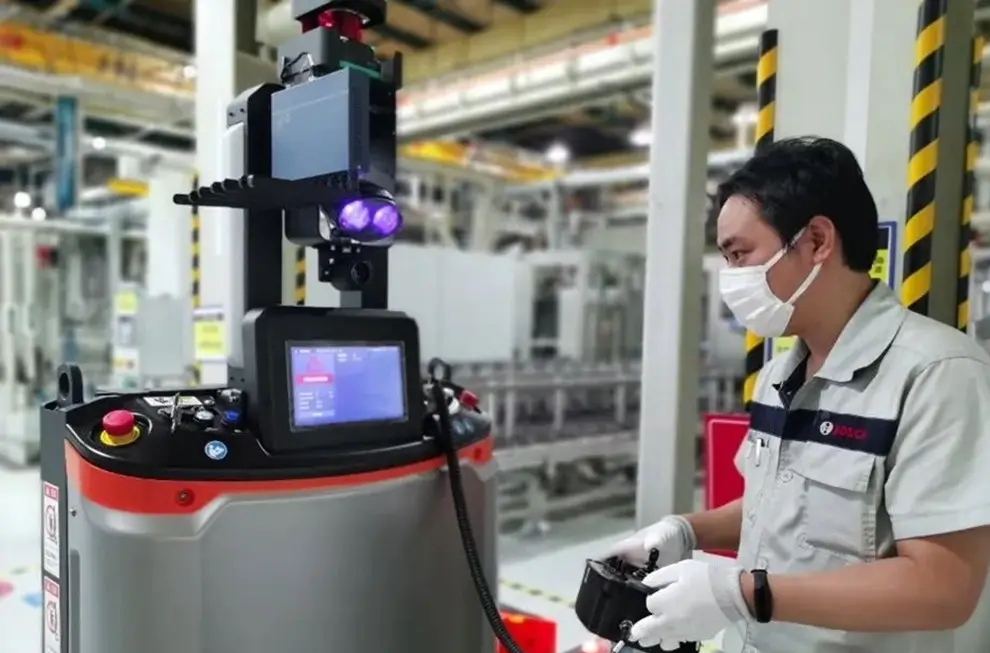
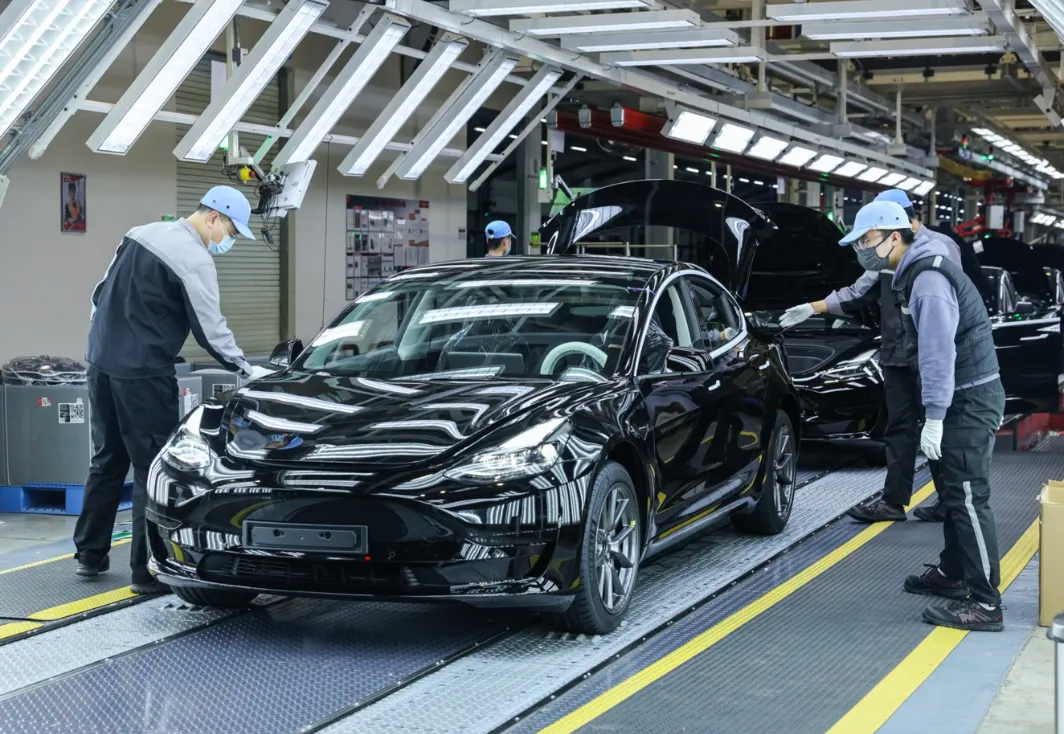
From the resumption of work on April 19, Tesla’s Shanghai factory has been shut down for a total of 23 days. Roughly estimated, the production loss reached 48,000 units, which has a significant impact on Tesla’s global sales.
The Shanghai factory is currently Tesla’s largest factory in terms of production capacity, contributing more than half of the global production in 2021. Tesla’s goal this year is to achieve nearly 1.5 million vehicle sales worldwide, and the Shanghai factory undoubtedly bears heavy responsibilities.
However, the data shows that Tesla China only delivered just over 1,500 vehicles in April. Musk said that considering the shutdown of the Shanghai factory, Tesla’s production in the second quarter of this year may be the same as the first quarter, or slightly lower.
At present, more than 8,000 employees have returned to Tesla’s Shanghai factory. As there is no dormitory inside the factory, Tesla has provided mattresses and sleeping bags to employees. The employees sleep in the factory and are provided with showering facilities and three meals a day.
According to employees, Tesla also provides subsidies. On workdays, each person can receive a maximum subsidy of 300 yuan, and they can receive a subsidy of 100 yuan on rest days. Currently, the motor production line and battery PACK production line are in full speed production, while the vehicle production line is gradually recovering. The employees adopt a production model of six days of work and one day off, and the daily output of vehicles is about 1,200 units.
However, there are always some unexpected situations during the resumption of work under the epidemic. As Chen Yudong said, once a component has a problem, production will be stopped again.
It is reported that due to supply chain issues, Tesla’s Shanghai factory has once again shut down, mainly because of the shortage of wiring harnesses from AMP. A worker at the AMP Shanghai factory was found to have contracted the new crown virus, which temporarily suspended the supply.
The pace of resumption of work is still tentative.
Tesla stated that from the market reaction, demand is not a problem, and production capacity is the main limiting factor. Musk also mentioned that Tesla’s current order backlog is very long, and some models even have orders placed for next year.
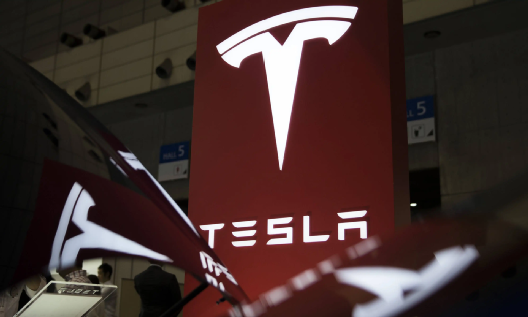
Musk still maintains confidence in Tesla’s sales target this year. He believes that Tesla is still expected to achieve a 60% increase in sales this year, and is confident that its annual growth rate will exceed 50% in the foreseeable future.
This confidence comes from Tesla’s Berlin factory, as well as the Austin factory that began production in early April. In particular, the Berlin factory bears the heavy responsibility of localizing production in Europe. This involves a recent old topic: “Tesla, which clearly stated that it will not build a new factory in China, will it transfer the importance of the Shanghai factory?”# Can Arrogant Porsche Go Further?
While Bosch and Tesla have been vocal about the importance of China, Porsche, with one out of every three cars sold in China, has recently been hit with accusations of being “very arrogant towards the Chinese market.”
The reason for this is that Porsche, without the consent of Chinese customers who pre-ordered, removed the electric steering column and “cut the price without reducing it,” and adopted a double standard for treating Chinese and foreign markets.
Many car owners complained that Porsche downgraded their vehicles’ electric steering wheel to a manual steering wheel and replaced its promises of “free upgrades” with a voucher worth only 2,300 yuan. The affected models include 911, Cayenne, Macan, and others. It is reported that the cost of installing an electric steering column at a 4S store is about 30,000 yuan.
Porsche’s arbitrary adjustment of remedies and compensation measures shows that it has adopted double standards for overseas markets such as Europe and America. For certain markets and models in overseas markets with certification requirements, Porsche not only provides compensation but also plans to continue installing electric steering columns in the future.
What makes Chinese car owners even more angry is that Porsche provided a solution along with a notice email sent to overseas car owners. In addition, Porsche has been criticized by car owners for discriminating against owners of entry-level models.
One Porsche owner said, “The 911 Turbo S and Cayenne Turbo are Porsche’s most expensive models, with a price of around 2 million yuan, and Panamera owners are generally business owners, so Porsche dare not downgrade these models. Taycan is an electric car that Porsche has been promoting and has been offering discounts at 4S stores.”
At the moment, Porsche, grinding glass and staring into the abyss, has been criticized in the wind.
While domestic car owners are eagerly awaiting a reasonable explanation, Porsche only explained in a letter to Chinese owners that due to “the global shortage of semiconductor production capacity leading to production bottlenecks in the automotive industry,” some vehicles will replace the electrically adjustable steering column with a manual adjustment mechanism, and the main reason is the global chip shortage.
In addition, recently in Texas, USA, Indonesian President Joko Widodo met with Musk to discuss potential investments and technological cooperation. The Indonesian government’s statement also said that Musk expressed interest in Indonesia’s future: “Indonesia has great development potential and there is room for cooperation in many areas.” Speculations abound that Indonesia may become Tesla’s next production base.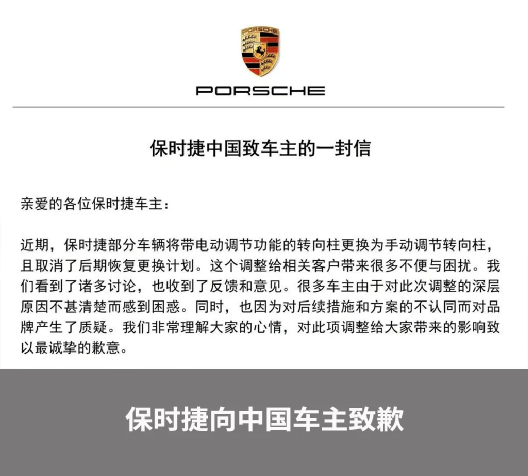
“Listening to one’s own words is better than a thousand hearings.” There is an arrogance in the attitude of “I just did it, what can you do to me?”. Porsche’s perfunctory statement has further angered the car owners who believe that “an apology statement cannot solve the problem of non-compliance and lacks sincerity.”
People’s Daily commented on this matter with direct and serious language, using terms such as “performing poorly” and “lacking shame”. “It is hoped that Porsche can come up with a decent and consumer-friendly remedy as soon as possible. Enterprises that do not respect consumers will ultimately pay for their arrogance.”
In the era of electrification, in China’s market where the brand is no longer the only criterion, can Porsche go further?
This article is a translation by ChatGPT of a Chinese report from 42HOW. If you have any questions about it, please email bd@42how.com.
